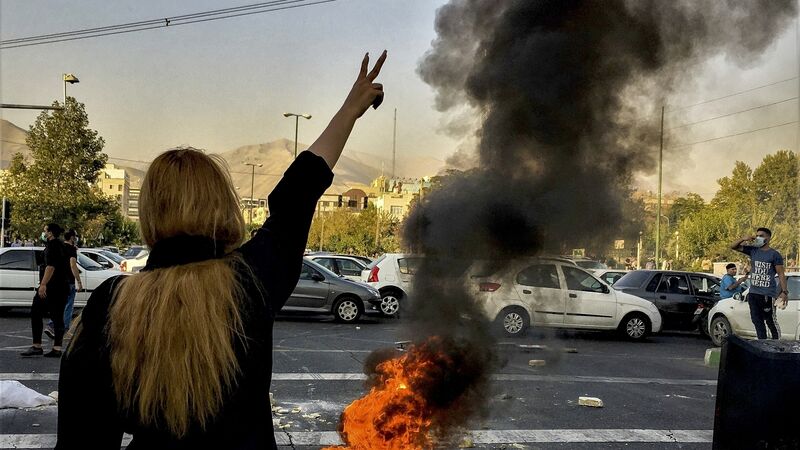'We will never be the same again': Iran's women speak

In this photo taken by an individual not employed by the Associated Press and obtained by the AP outside Iran, Iranians protests the death of 22-year-old Mahsa Amini after she was detained by the morality police, in Tehran, Oct. 1, 2022. Picture: AP Photo/Middle East Images, File
Despite being arrested multiple times, shot at, and humiliated, Iranian woman Ghazaal is willing to share her story. She is risking a lot speaking to me.
We talk sporadically — punctuated by a day or more at a time. I download a secure app for our correspondence — reports that the Iranian government is using spyware to track phones are circulating, so it is imperative that our line is secure.











